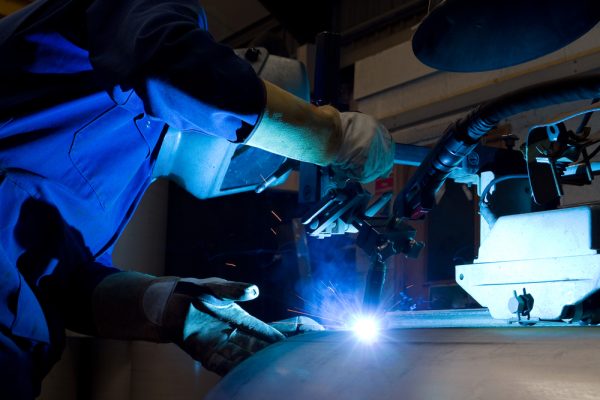Metal fabrication is a critical process in various industries, transforming raw metal materials into functional parts and structures. From constructing skyscrapers to crafting intricate machinery components, metal fabrication ensures that our modern world stands strong and functions efficiently. In this thorough study, we will explore the common types of metal fabrication processes and their industrial uses, providing insights that can guide you in choosing the right metal fabrication company for your needs.
What is Metal Fabrication?
The process of cutting, bending, and assembling metal to make objects or structures is known as metal fabrication. Several methods and instruments are used in this procedure to mold and shape metal into the required shape. Metal fabrication is crucial in many industries, such as construction, automotive, aerospace, and manufacturing.
Common Types of Metal Fabrication Processes
Let’s take a closer look at some of the most common types of metal fabrication processes:
Cutting
Cutting is one of the most basic types of metal fabrication processes. It involves removing unwanted material from a metal workpiece. Various cutting methods include:
Laser Cutting: Utilizes a high-powered laser to cut precise shapes and designs in metal.
Plasma Cutting: A plasma torch quickly cuts through thick metal sheets.
Waterjet Cutting: Uses a high-pressure stream of water mixed with abrasives to make clean cuts without generating heat.
Bending
Bending is the process of deforming metal to a desired angle or shape without breaking it. Techniques include:
Press Brake Bending: A press brake machine bends metal sheets at specific angles.
Roll Bending: Involves rolling metal sheets into cylindrical shapes using roller machines.
Welding
Welding is the process of joining two or more metal pieces by applying heat, pressure, or both. Common welding techniques include:
MIG Welding (Metal Inert Gas): An electric arc and inert gas to weld metal pieces together.
TIG Welding (Tungsten Inert Gas): Employs a tungsten electrode to produce precise and high-quality welds.
Stick Welding: A consumable electrode coated in flux welds metal parts.
Stamping
Stamping involves pressing a metal sheet into a die to form specific shapes and designs. This process includes:
Punching: A punch press creates holes or shapes in metal sheets.
Coining: Involves pressing metal into a die to create detailed designs or patterns.
Casting
Casting is the process of pouring molten metal into a mold to create a specific shape. Types of casting include:
Sand Casting: Sand molds are used to form complex metal parts.
Die Casting: Employs reusable molds, or dies, for mass-producing metal components.
Industrial Uses of Metal Fabrication
Construction
Beams, columns, and trusses are examples of structural elements made in construction using metal fabrication. These components form the foundation of all buildings, bridges, and other infrastructure projects.
Automotive
Metal fabrication is used in the automobile industry to create body panels, engine parts, and car frames. Accuracy and robustness are essential for ensuring vehicle performance and safety.
Aerospace
Aerospace companies use metal fabrication to produce lightweight, high-strength components for aircraft and spacecraft. This includes everything from fuselage sections to intricate engine parts.
Manufacturing
Metal fabrication produces the tools, machinery, and equipment needed to run production lines. Fabricated metal components guarantee efficiency and dependability in everything from robotic arms to conveyor systems.
HVAC
The HVAC (Heating, Ventilation, and Air Conditioning) industry utilizes metal fabrication to produce ductwork, vents, and other components essential for climate control systems.
Choosing the Right Metal Fabrication Company
Selecting a reliable metal fabrication company is crucial for achieving high-quality results. Here are some tips to help you make an informed decision:
Experience & Expertise:
Look for a company with a proven track record and expertise in the specific type of metal fabrication you need.
Equipment & Technology:
Ensure the company uses advanced equipment and technology to deliver precise and efficient fabrication services.
Quality Assurance:
Check if the company follows stringent quality control measures to guarantee top-notch results.
Custom Capabilities:
Choose a company that offers custom fabrication services tailored to your unique requirements.
Contact Cresco for best metal fabrication!
Looking for a trustworthy metal fabrication company? Contact Cresco at – 714 525 2326 or visit our website for more details.


